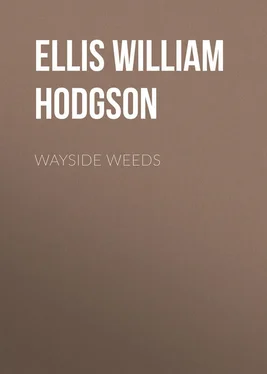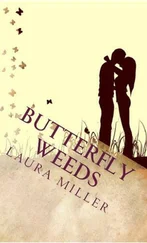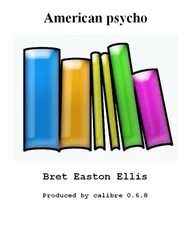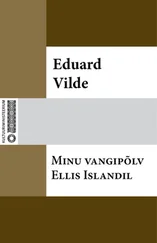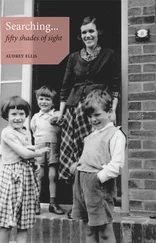William Ellis - Wayside Weeds
Здесь есть возможность читать онлайн «William Ellis - Wayside Weeds» — ознакомительный отрывок электронной книги совершенно бесплатно, а после прочтения отрывка купить полную версию. В некоторых случаях можно слушать аудио, скачать через торрент в формате fb2 и присутствует краткое содержание. Жанр: Поэзия, foreign_antique, foreign_prose, foreign_poetry, на английском языке. Описание произведения, (предисловие) а так же отзывы посетителей доступны на портале библиотеки ЛибКат.
- Название:Wayside Weeds
- Автор:
- Жанр:
- Год:неизвестен
- ISBN:нет данных
- Рейтинг книги:5 / 5. Голосов: 1
-
Избранное:Добавить в избранное
- Отзывы:
-
Ваша оценка:
- 100
- 1
- 2
- 3
- 4
- 5
Wayside Weeds: краткое содержание, описание и аннотация
Предлагаем к чтению аннотацию, описание, краткое содержание или предисловие (зависит от того, что написал сам автор книги «Wayside Weeds»). Если вы не нашли необходимую информацию о книге — напишите в комментариях, мы постараемся отыскать её.
Wayside Weeds — читать онлайн ознакомительный отрывок
Ниже представлен текст книги, разбитый по страницам. Система сохранения места последней прочитанной страницы, позволяет с удобством читать онлайн бесплатно книгу «Wayside Weeds», без необходимости каждый раз заново искать на чём Вы остановились. Поставьте закладку, и сможете в любой момент перейти на страницу, на которой закончили чтение.
Интервал:
Закладка:
William Hodgson Ellis
Wayside Weeds
Little White Crow
(A LEGEND OF ST. ANNE)
Little White Crow was an Algonkin,
And he lived on the Isle of Chips;
His legs were long, and his flanks were thin,
He had high cheek-bones, and a strong square chin,
Jet black was his hair, dark red was his skin,
And white were his teeth, when a joyful grin
At the sound of the war-whoop’s hideous din
Parted his silent lips.
Three eagles’ feathers adorned his head,
Well greased was his snaky hair;
His face was daubed with black and with red,
No trousers he wore, but fringed leggings instead,
And moccasins ’broidered with quills for thread.
Very proud was his look, very stately his tread,
And of this he was fully aware.
Little White Crow had a sharp couteau ,
A carbine, and powder and shot:
And the scalps of the braves whom he’d sent below
Hung at his girdle, a goodly row.
He’d a med’cine bag where he was wont to stow
Charms against famine and fever and foe:
And over his shoulders he used to throw
A beaver-skin robe on occasions of show:
Oh, a very fine fellow was Little White Crow!
If you’re curious to learn why they christened him so
The Indian Department might possibly know
Ask Deputy Minister Scott.
Father Le Cocq was a priest from Quebec,
Rather spindle of shank, rather scraggy of neck;
He’d a stoop in the shoulder, was yellow of skin,
With closely cut hair, and a smooth shaven chin,
He had very black eyes, and a rather red nose;
Wore shoes with steel buckles and very square toes,
A big shovel hat, a black cassock and bands,
And a rosary seldom was out of his hands.
But Loyola never, and nowhere than he
Had a loyaller or a more staunch devotee;
And none carried further the Jesuit virtue,
Viz.: – “Do as you’re bid, and don’t cry if it hurt you!”
Though gentle by nature and fond of his ease,
He would work like a slave his Superior to please;
He would shrink from no danger, pain, toil or disgrace,
Or would swear wrong was right until black in the face!
As wise as a serpent, as firm as a rock,
Yet as meek as a dove was good Father Le Cocq.
With bell, book and candle the priest had been sent
To Ottawa’s banks, with the pious intent
To find, if he could, after diligent search,
A few stray, red sheep for the fold of the church;
And there in a cabin of poles and of bark,
He sang hymns and said masses from daylight to dark.
It happened one day that good Father Le Cocq
Had been visiting some of the lambs of his flock,
And homeward returning, his pious task done,
Was paddling along at the set of the sun.
Now a man may be virtuous, learned, austere,
In religion devout, and in morals severe,
Yet, – true as it’s strange, and sad as it’s true, —
Not able to manage a birch bark canoe!
So now, – at the paddle by no means a dab, —
He caught what is vulgarly known as a “crab”:
His balance he lost, the canoe was upset,
And Father Le Cocq tumbled into the wet!
Poor Father Le Cocq! any chance looker-on
Would have fancied for certain, his usefulness gone.
And, indeed, the priest’s chance was uncommonly slim,
The current ran fast, not a stroke could he swim,
And he thought all was over in this world for him.
But, thanks to St. Francis, St. Anne, St. Ignatius,
Or some saintly personage equally gracious,
It happened that not fifty paces below,
Behind a big boulder sat Little White Crow.
He was fishing for trout, and I wish I could catch,
In these days of saw-mills another such batch!
The rock, as I’ve said, hid the priest from his view,
But he heard a great splash, and he saw a canoe
Float down bottom upwards, while close behind that
Swam jauntily after, – a big shovel hat.
No moment to ponder paused Little White Crow:
He sprang from the bank like a shaft from a bow;
He could swim like a mallard and dive like a loon,
But he reached the poor priest not a moment too soon;
Caught hold of his cassock and collared him fast,
Just while he was sinking the third time and last;
Then reaching the shore, dragged the poor Father out,
As you’d land a remarkably overgrown trout!
It’s needless to mention that Little White Crow
Did not know, and could not be expected to know,
Doctor Marshall Hall’s method, so justly renowned,
For restoring to life the apparently drowned;
But he worked in his own way with such a good will,
He rubbed and he chafed with such zeal and such skill
That the priest after heaving some very deep sighs,
First yawned, and then groaned, and then opened his eyes.
Little Crow’s simple means as completely succeeded,
As ever the treatment of any M.D. did.
(Where credit is due I’m determined to give it)
And the priest before long was as right as a trivet.
“My friend and preserver, you very well know,”
Thus the Father the red-skin addressed,
“That of gold and of silver I’ve none to bestow,
In return for the life that to you I must owe”;
(Here he drew a silk bag from his breast) —
“But one precious treasure I beg you’ll accept.”
(And here, overcome by emotion, he wept.)
Then he took a small object from out of the bag,
Which he carefully wiped with a small piece of rag.
A moment he tenderly gazed on it, – then
He kissed it with fervour again and again,
One last lingering look of affection, – and so
He handed it over to Little White Crow.
With stately politeness the Indian received
The treasure so prized, and at once he perceived,
(With some disappointment, to tell you the truth,)
A badly decayed, rather large, double tooth !
“In your estimation, I very much fear,”
Thus gravely the Father began,
“Devoid of all value my gift will appear;
But when you have heard me its worth will be clear:
’Tis a relic of Holy Saint Anne!
To tell half its virtues all night would require:
’Tis an excellent cure for the vapours;
’Twill heal any dropsy, no matter how dire,
Put out the last spark of Saint Anthony’s fire,
And stop all Saint Vitus’s capers!
The twinges of toothache, so hard to endure,
The quinsy, the gout and the spleen,
The scurvy, the jaundice, all these it will cure;
While to break up an ague you’ll find it more sure —
And a great deal more cheap, – than quinine.
“In short, there is nothing need cause you alarm
So long as this relic you wear;
You’ll find it indeed an infallible charm
Against every conceivable species of harm
To which poor humanity’s heir.”
He ceased, the red-skin gravely smiled,
And gravely shook his head,
And then the simple forest child
Addressed the priest in accents mild,
And this is what he said:
“My uncle thinks it’s easy to gull
Little White Crow, I ween;
Hollow and empty he deems his skull,
He fancies his wits are all gone dull, —
He’s wrong, – they’re Al-gon-keen !”
He grinned, and without any further delay
Put the tooth in his med’cine bag safely away,
And then with a gesture more free than polite,
Clapped the priest on the shoulder and wished him, “good night.”
A year and a day! A year and a day!
How the days and the weeks and the months roll away!
How little we know what of joy or of sorrow lies
Before us next year – but I’ve no time to moralize.
Well, a year and a day had elapsed as I’ve stated,
Since the incidents happened I lately related.
Little White Crow and a score of his friends
To further their own individual ends
(And those of their neighbours as well, I’ve no doubt),
Deep loaded with furs for Quebec had set out.
Интервал:
Закладка:
Похожие книги на «Wayside Weeds»
Представляем Вашему вниманию похожие книги на «Wayside Weeds» списком для выбора. Мы отобрали схожую по названию и смыслу литературу в надежде предоставить читателям больше вариантов отыскать новые, интересные, ещё непрочитанные произведения.
Обсуждение, отзывы о книге «Wayside Weeds» и просто собственные мнения читателей. Оставьте ваши комментарии, напишите, что Вы думаете о произведении, его смысле или главных героях. Укажите что конкретно понравилось, а что нет, и почему Вы так считаете.
